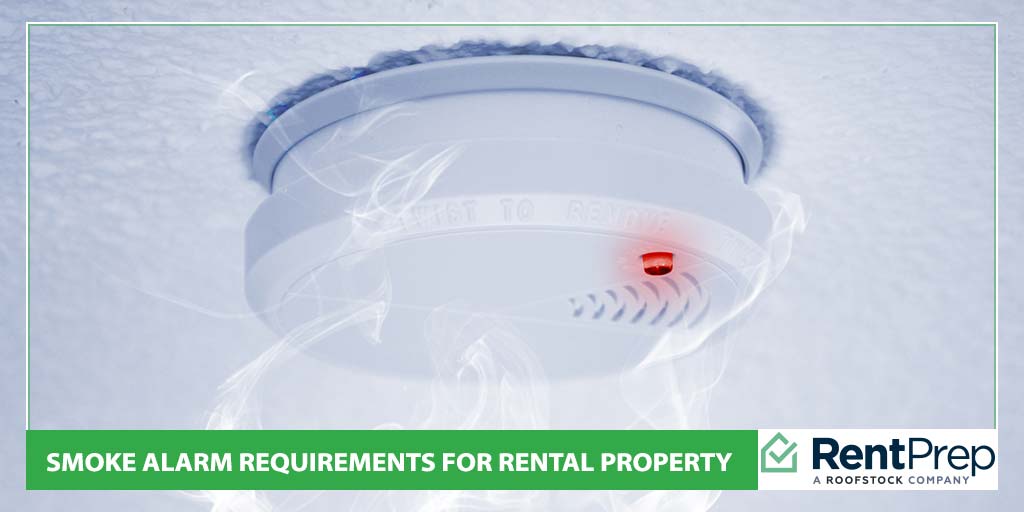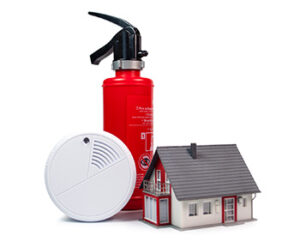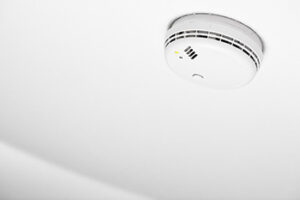
Smoke alarms may seem like a no-brainer to install at home, but did you know that you may be required to install smoke alarms at all of your rental properties as well? Most landlords will want to install these alarms to protect their property regardless, but it’s important to understand what are the smoke alarm requirements for the rental property that you manage.
In addition to being a requirement in some areas, having smoke alarms at your properties just makes sense, too. When the alarms put off false alarms or need the batteries to be changed, however, you might once again be left wondering whose responsibility it is to make those improvements.
Today, we’ll cover some details about landlords’ smoke alarms regulations and how those rules should be incorporated into your rental property management.
A Table Of Contents For Landlord’s Smoke Alarms Regulations
- Are Smoke Alarms Compulsory In Rental Properties?
- Pay Attention To State Laws On Smoke Alarms
- The Benefits Of Installing Smoke Alarms
- When You Must Change Smoke Alarms
Are Smoke Alarms Compulsory In Rental Properties?

While not every state has laws that require many smoke alarms to be installed yet, we believe that smoke alarms should be installed in all rental properties whether or not the law clearly requires them.
All state laws might not have clear or thorough smoke alarm guidelines; it is your responsibility as a landlord to ensure that your tenant is living in a safe and habitable environment. For all intents and purposes, this means that the property should have an adequate amount of fire protection, including smoke alarms.
It is your duty to protect the property and to provide the tenants a safe place to live. That means that you need to have smoke alarms installed at the property!
Pay Attention To State Laws On Smoke Alarms
While you might believe that installing one smoke alarm at the property is going to provide adequate protection for your tenants, the state laws in your region might not line up with that mentality.
Rental laws are largely determined and enforced on the state level. This means that the rules and regulations about smoke alarms for your rental property can be found within your state law. Like carbon monoxide detector laws, the rules for each state may have slight variations, but the bottom line is that tenants need to be kept safe.
For example, some states require that you install smoke alarms within 15 feet of every bedroom while others require testing to be done to ensure that the alarms work properly. Both laws ensure tenant safety.
It’s safe to assume that your state has some type of regulations about the installation and maintenance of smoke alarms at your property. To make sure that you follow the necessary codes, check into these requirements before renting out any property.
The Benefits Of Installing Smoke Alarms
Beyond installing smoke alarms because you are required to by law, we feel that landlords should install an adequate amount of smoke alarms on all of their properties for other reasons as well. There are a lot of benefits to keeping smoke alarms installed and functioning at each of your rentals.
These are just a few of the major benefits that you earn by properly installing and maintaining smoke alarms around your properties:
- Protect your investment
- Protect your tenants
- Reduce risk of damages
- Alert you to ventilation, humidity, and other issues that can trigger the alarm
- Alert you to appliance problems (i.e., an oven that smokes)
Even if the law said that you did not have to have any smoke alarms, we would highly recommend that you installed a few on each property. Smoke alarms will protect your investment by protecting the property itself, and they will also protect your tenants from serious harm. And that is worth the investment.
When You Must Change Smoke Alarms

In addition to installing smoke alarms, it is likely your responsibility to keep up with their maintenance as well. All of your rental leases should include information about whether you, the landlord, or the tenant is responsible for replacing the batteries in the property’s smoke detectors. In most cases, the responsibility falls to the landlord.
Additionally, smoke detectors are only guaranteed to have a service life of 10 years. After that time, you must replace the smoke alarms. If you have an expired smoke alarm, it will not be able to properly protect your tenant or your property, so keeping track of installation dates is very important.
Finally, one last note about leases and smoke detectors. Be sure that your lease lets your tenants know that they must alert you if the smoke detector goes off unexpectedly as it can be a sign of a faulty alarm. It is their job to let you know there is a problem so that you can do your job and fix it!
Smoke Alarm Requirements
Whether or not the law requires that you install smoke alarms at your rental properties, it is important that you consider it a must to protect both your investment and your tenants. Most states do require some level of smoke alarm installation, but this is one area where you should be willing to go above-and-beyond to keep things safe and secure!

